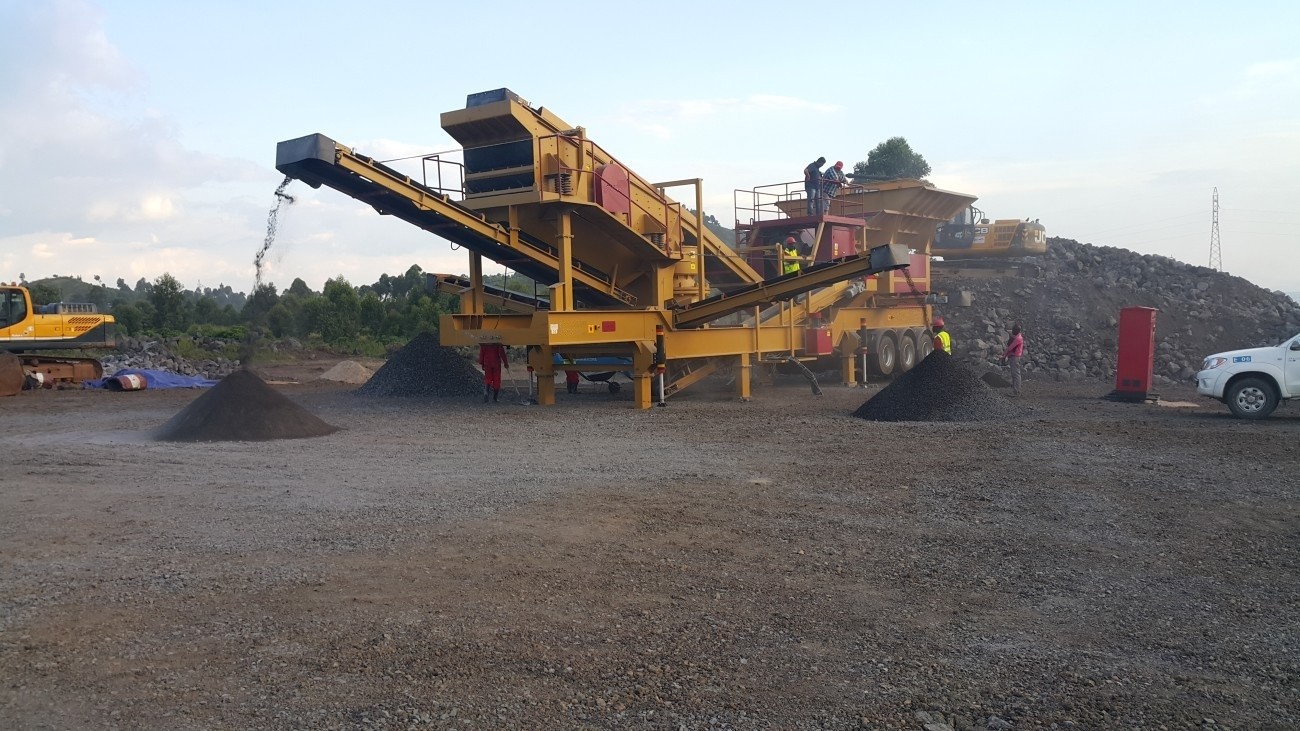Mobile Crusher for Production
A mobile crusher is a highly versatile and efficient piece of machinery used in the mining, construction, and recycling industries. It is designed to process a wide range of materials, from hard rock to soft minerals, construction debris, and even asphalt. These machines are equipped with powerful crushers, screens, and conveyors that allow them to perform multiple tasks on-site, eliminating the need for transporting materials to a fixed crushing plant.
1. Types of Mobile Crushers
Mobile crushers are generally classified into two main types: tracked and wheeled.
-
Tracked Mobile Crushers: These crushers are mounted on tracks, allowing for high mobility on uneven terrain. They are ideal for working in quarries, construction sites, and other areas where space is limited or ground conditions are challenging.
-
Wheeled Mobile Crushers: These crushers are mounted on wheels and are typically more suitable for environments where mobility is required between different job sites on relatively smooth terrain.
2. Features of Mobile Crushers
Mobile crushers come with various features depending on the type of work they are designed for. Some of the essential features include:
-
Hydraulic System: The hydraulic system enables the crusher to perform various operations such as adjusting the crusher's settings, lifting heavy components, and ensuring efficient crushing.
-
Screening Capabilities: Most mobile crushers are equipped with screens that help sort materials into different sizes, making it easier to process materials more efficiently.
-
Energy Efficiency: Many modern mobile crushers are designed with fuel efficiency in mind, reducing operational costs while maximizing productivity.
-
Integration with Other Machinery: Mobile crushers often work in tandem with other equipment like mobile screens, conveyors, and wash plants for optimal processing and handling of materials.
3. Applications of Mobile Crushers
Mobile crushers are used in a variety of industries, including:
-
Construction: They are used to crush and recycle concrete, asphalt, and other building materials on-site, reducing the need for transporting waste to distant locations.
-
Mining: Mobile crushers are used for crushing ores, stones, and minerals, making it easier to process materials in remote locations without needing to set up permanent crushing plants.
-
Recycling: These crushers play a significant role in the recycling industry, processing construction debris, old concrete, and asphalt to produce reusable materials like aggregates.
-
Quarrying: Mobile crushers help in reducing the size of large rocks and other materials directly at the quarry, allowing for easier extraction and transportation.
4. Advantages of Mobile Crushers
-
Flexibility and Mobility: The ability to move the crusher from one location to another allows for increased productivity and reduced transportation costs.
-
Cost Savings: The elimination of the need to transport materials to a stationary crushing plant significantly reduces operational costs.
-
Environmental Impact: By reducing the need for transportation, mobile crushers help in lowering carbon emissions and minimizing the environmental footprint of operations.
5. Challenges in Mobile Crusher Production
While mobile crushers offer numerous advantages, they also present certain challenges. These include:
-
Maintenance and Wear: Constant movement and heavy-duty operations can lead to wear and tear on mobile crushers, requiring regular maintenance to ensure optimal performance.
-
Cost of Acquisition: The initial cost of purchasing and setting up a mobile crusher can be high, although it can be offset by the savings in transportation and operational costs over time.
-
Limited Processing Capacity: Some mobile crushers may have a lower processing capacity compared to stationary crushers, which may be a consideration for large-scale operations.
 English
English
 Le français
Le français
 Türkçe
Türkçe

